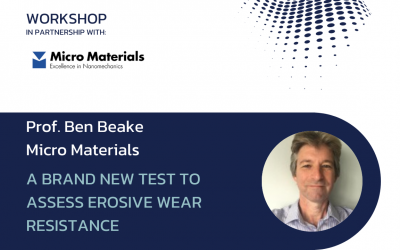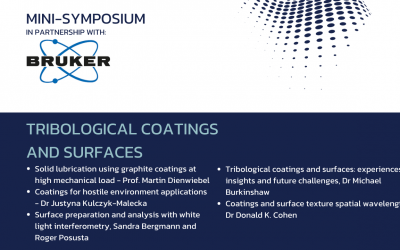ABOUT THIS WEBINAR
Sputtered transition metal dichalcogenides (TMD) coatings have been extensively studied in last years for low friction applications. Their lamellar structure, when conveniently oriented in relation to the sliding direction, is in the basis of the extremely low values of friction. However, to provide TMDs with suitable mechanical strength, their alloying with different elements is required resulting in amorphous or nanocomposite structures. Then, low friction in the sputtered coatings can only be achieved if a self-adaption process takes place in the sliding contact. Then, crystallization/reorientation of TMD crystals can occur with the consequent achievement of the low friction.
In this webinar, recent findings on TMD sputtered coatings are presented. Besides a general overview of TMD coatings, a new interpretation of the mechanisms ruling the self-lubricating character of these coatings during sliding contact are developed. Moreover, problems, concerns and solutions for the upscaling of the sputtering deposition of TMDs are discussed.
ABOUT THE SPEAKER
Albano Cavaleiro is Full Professor in the University of Coimbra (UC), Portugal. He is President of Centre for Mechanical Engineering Materials and Processes at UC (170 researchers) and head of the Laboratory of Tests Wear & Materials at Instituto Pedro Nunes (30 researchers). His field of research is on Materials and Surface Engineering, Deposition and characterization of thin films, Tribology, Nanocrystalline and nanocomposite materials, Hard and Self-lubricating coatings.
Many applications of coatings and bulk materials in the aerospace, nuclear, fuel cell and cutting tool industries involve high temperatures. Accurate nanomechanical data can improve our understanding of the link between the small-scale mechanical behaviour and the performance and design of advanced materials systems for increasingly extreme environments. Data from measurements at or close to operating temperatures can be much more relevant than those obtained from room temperature measurements. However, high-temperature nanomechanics is more experimentally challenging than measuring at room-temperature.
In this webinar, Professor Ben Beake:
- Showed why accurate high temperature nanomechanical measurements require careful instrumental and experimental design
- Identified critical factors influencing data quality and provide effective thermal and environmental control methods to produce reliable high temperature data to 1000 °C
- Illustrated with published examples from coatings and bulk materials used in the aerospace, nuclear, fuel cell and cutting tool industries
About the speaker
Professor Ben Beake, Director of Materials Research, Micro Materials Ltd.
Samuel McMaster completed his PhD in 2020 at the University of Leeds where he investigated the nanomechanical properties of diamond-like carbon coatings to assess tribological performance under the supervision of Prof. Tomasz Liskiewicz, Prof Ben Beake and Prof. Anne Neville. Dr McMaster is currently a Materials Scientist (KTP Associate) at Coventry University and is the Event Manager of Surface Ventures.










